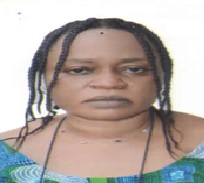Department of Oral & Maxillofacial Pathology/Biology
Welcome Note

We are pleased to welcome you to the Department of Oral and Maxillofacial Pathology/Biology in the Faculty of Dental Sciences of the College of Medicine University of Lagos. We are a department with exceptionally competent, dedicated and research oriented academic, clinical, laboratory and administrative staff. Our academic staff are trail blazers in the field of Oral and Maxillofacial Pathology as evident by the quality of research work published in peer-reviewed as well as local and international journals. They are devoted to training and compassionate healthcare service delivery.
Our departmental offices are located mainly on the 1st and 2nd floor of the new dental for academic and administrative staff; our laboratory equipped with a tissue sectioning room, tissue processing equipment and storage facility is located on the 1st floor of the new dental for academic and administrative staff and our clinic facility equipped with dental chairs and a radiographic machine is located in the old dental block. The department has access to a 100-capacity lecture hall on the 1st floor, a 50-capacity seminar room on the 3rd floor and a state-of-the-art ultra-modern library located on the 2nd floor of the new dental block.
The department is involved in the training of undergraduate dental student in Oral biology and Oral and Maxillofacial Pathology utilizing innovative lecturing techniques, seminars and slide demonstration sessions. The department also trains postgraduate resident doctors for the award of fellowship of the National Postgraduate Medical College and the West African College of Surgeons.
History of the Department
The Department of Anaesthesia of the College of Medicine was the first autonomous academic Department of Anaesthesia to be established in the West-African sub-region in 1962 by Prof Shirley Fleming from the University of Toronto. She was the first Head of Department. She was later joined by Dr Earl Russoll from Canada, Dr Aileen Adams from Cambridge, England and Dr Oswald Dawkins from Jamacia in 1963.
The members of staff subsequently increased with the employment of Drs Fowler, Sodipo, Emmanuel and Ffoulkes-Crabbe. Prof V. Fowler became the second Head of Department in 1968. During his tenure, the residency training programme in anaesthesia commenced in 1972. The headship of the department transferred to Prof D.J.O. Ffoulkes-Crabbe in 1978 and has been held by a number of distinguished anaesthetists including Prof O.T. Kushimo
Besides training of undergraduate students, the Department has been in the forefront of postgraduate anaesthesia training being the first Department in the country to offer the University Postgraduate Diploma in Anaesthesia (PGDA) which has produced over 150 diplomates to cater for the middle level manpower in the country.
On the 25th of November 2009, the Department of Anaesthesia became one of the 13 departments to become part of the Faculty of Clinical Sciences approved by the Governing Council of the University of Lagos,
Academic Programs
Undergraduate Academic Programme
During a four weeks posting in the 400 level year of their training, medical and dental students are taught the Principles of resuscitation in general and cardiopulmonary resuscitation in particular as well as the Principles of Anaesthesia: preoperative assessment and optimization of surgical patients, different anaesthetic techniques including regional anaesthesia, anaesthesia for different surgical specialties, Intra-operative care of patients including monitoring, fluid therapy and blood transfusion, post operative care including pain assessment and management. Cardiopulmonary resuscitation (CPR) is augmented by practice on manikins (adult, child, infant) in small groups. Self-directed learning is encouraged through weekly small group tutorials. The students are expected to actively participate in operative anaesthesia in the theatre and sign up a log book of activities.
At the 600 level of their training, the medical students undergo a two week posting in critical care medicine and are taught the fundamental principles of management of acutely ill patients including the use of appropriate oxygen therapy, ventilatory therapies, monitoring, analgesia and sedation in the critically ill and the management of common conditions in the Intensive Care Unit(ICU): traumatic brain injury, severe sepsis, severe tetanus, severe burns, cerebrovascular accident etc. The students are expected to actively participate in the daily management of critically ill patients in the ICU and sign-up a log book of activities.
Postgraduate Academic Programme
The department runs a 12 month full time Postgraduate Diploma in Anaesthesia (PGDA) course, the objective of which is to prepare the candidate for a career in clinical anaesthesia at a middle level cadre. It consists of nine courses including practical theatre sessions. The curriculum centres around: medicine for anaesthetists, drugs in anaesthetic practice, techniques of anaesthesia and clinical anaesthesia
